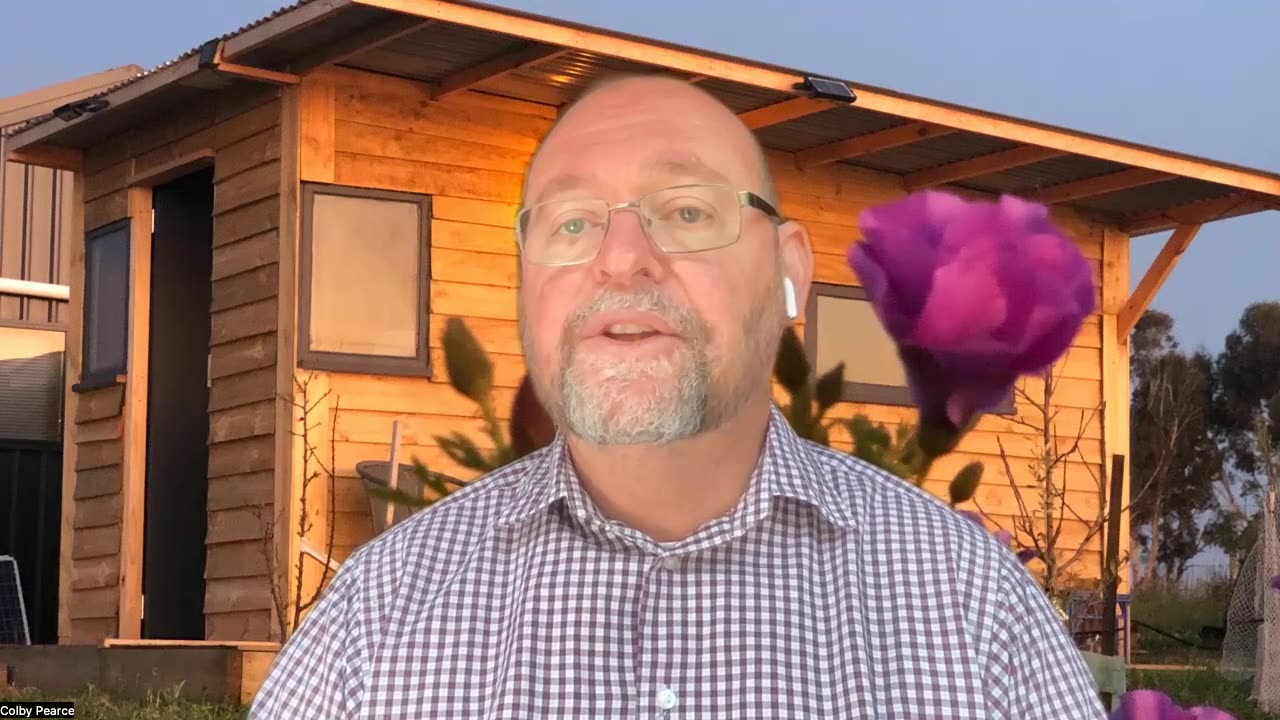Premium Only Content

Three key questions for understanding and responding therapeutically to behaviours of concern
In this short video, I present three key reflective questions you might consider when seeking to better understand and respond therapeutically to behaviour of concern displayed by children and young people who are recovering from a tough start to life. The questions are based on the Triple-A Model, a model for understanding the impact of early adversity and trauma on the developing child. The video is intended to be of most interest to carers of children and young people who are recovering from a tough start to life, and professionals who support them (both). For more information about the Triple-A Model and therapeutic caregiving, I refer you to the links below, and in particular the self-paced learning modules on the Secure Start website.
Website: securestart.com.au: https://securestart.com.au/
Blog: Attachment and Resilience: https://colbypearce.net/
Self-paced learning modules: https://securestart.com.au/self-paced-learning/
Self-based learning handbooks: https://colbypearce.net/self-paced-learning-handbooks/
You can email me at colby@securestart.com.au
Colby Pearce is a Clinical Psychologist who lives and works on Kaurna, Nurungga, and Nukunu country in the land known as Australia. Across the last twenty-eight years Colby has worked continuously with children and young people recovering from a tough start to life, and adults who interact with them in care and professional roles. He maintains three busy psychotherapy clinics, but also finds time to write and deliver programs intended to enhance awareness of the experience, needs, and therapeutic care of young people who have experienced complex childhood trauma, including in Ireland. Colby also works with teams that support kinship carers of Australian Aboriginal Children, the stabilisation of kinship care arrangements, and family reunification. Colby is looking to expand his work with individuals and teams working in the child welfare space, and write more!
Disclaimer: While great care is taken to ensure that the information in this video is applicable to childhood trauma and based on sound psychological science, it may not suit the individual circumstances of all viewers. If you have any concerns about applicability to your circumstances, please consult a qualified professional near to you.
-
 2:23:02
2:23:02
Badlands Media
1 day agoThe Liberty Den Ep. 133
103K44 -
 2:05:41
2:05:41
TimcastIRL
10 hours agoTrump SLAMS Ukraine President In TENSE WH Meeting, The War MAY END w/ Rob Smith | Timcast IRL
188K104 -
 10:31:05
10:31:05
Dr Disrespect
19 hours ago🔴LIVE - DR DISRESPECT - PGA TOUR 2K25 LAUNCH DAY
204K29 -
 2:30:04
2:30:04
Laura Loomer
10 hours agoEP105: MISSING: The Epstein Files
88.6K61 -
 1:46:14
1:46:14
Kim Iversen
11 hours agoTrump to Zelenskyy: 'You're Gambling with World War III'
96.9K138 -
 55:28
55:28
Glenn Greenwald
13 hours agoGlenn Reacts to Trump-Zelensky Exchange and Takes Q&A from our Members | SYSTEM UPDATE #415
148K244 -
 4:26:54
4:26:54
Nerdrotic
15 hours ago $41.14 earnedMarvel PANIC MODE! Kathleen Kennedy GONE?! Hollywood DEI Dead | Friday Night Tights 342 Nick Freitas
156K41 -
 1:30:03
1:30:03
Flyover Conservatives
1 day agoZelensky Fail... God Called IT!; From Prison to the White House: Angela Stanton King’s Unbelievable Redemption Story | FOC Show
66.1K6 -
 1:06:14
1:06:14
IsaacButterfield
15 hours ago $2.55 earnedFree Speech Is Dead | Did Trump Go Too Far? | Sexist Job
54.5K21 -
 1:02:59
1:02:59
Sarah Westall
17 hours agoEpstein Files, Dueling Cabal Factions and Gold from Ancient Civilizations w/ Dave Hodges
81.9K34